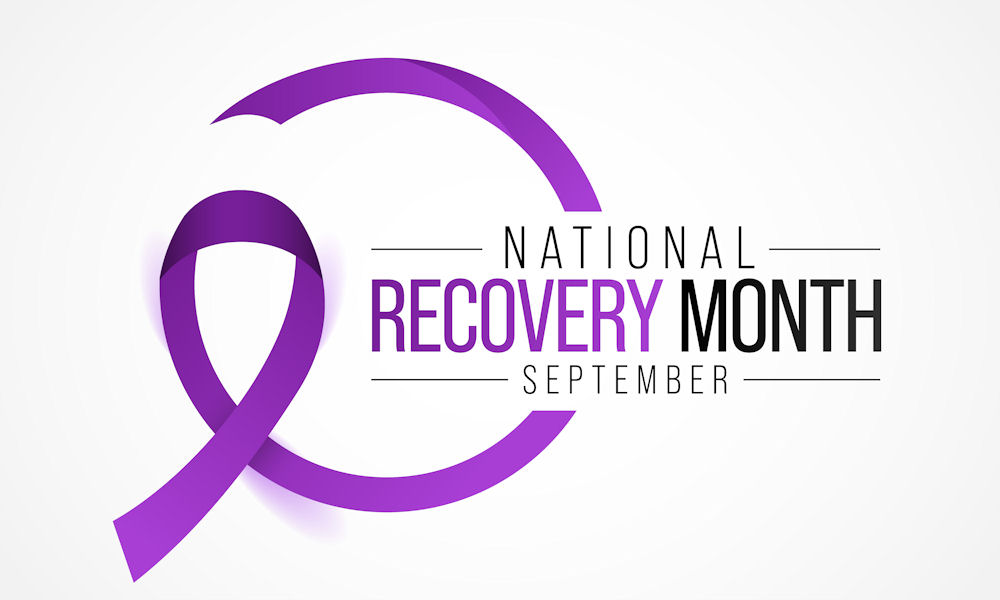September is National Recovery Month. This time of year is special; it’s dedicated to celebrating the resilience of those who have struggled or are currently struggling with substance abuse and mental illness. This annual observance encourages individuals to broaden their understanding of the recovery journey. Recovery is possible and this month recognizes the significance of support from family, friends, and the community. Throughout September, various events, activities, and educational initiatives aim to raise awareness. They also aim to reduce stigma and empower those on their journey to long-term stability and sobriety. By sharing stories of hope and recovery, National Recovery Month in September inspires others to seek the help they need; it emphasizes that recovery is not only achievable but also a source of strength and growth.
What is National Recovery Month?

National Recovery Month is observed every September in the United States to celebrate treatment for addiction and recovery from substance abuse. This annual observance aims to raise awareness about mental health and addiction; it encourages individuals to seek help and support. National Recovery Month also serves to highlight the achievements of those in recovery, shining light on their stories. Community events, educational activities, and advocacy efforts are organized nationwide in September. This is done to encourage a deeper understanding of recovery and to eliminate the stigma associated with substance use disorders.
There is an immense amount of stigma attached to substance use disorders. National Recovery Month plays a crucial role in addressing this stigma. It encourages open conversations about the challenges faced by individuals in recovery. Addiction is a complex disease, not a moral failing. The recognition that this month gives to those struggling showcases their stories of successful recovery. National Recovery Month also emphasizes the significance of treatment and recovery resources, demonstrating that recovery is possible; those struggling with addiction deserve compassion and support rather than judgment. This collective effort helps to reduce stigma, ultimately creating an environment that encourages more people to seek the help they need.
National Recovery Month, observed every September, began in 1989. It started as a way to establish the idea that recovery from substance use disorders is possible. Ultimately, the goal was to celebrate the achievements of individuals in recovery. National Recovery Month in September was initially established by the Substance Abuse and Mental Health Services Administration (SAMHSA); this observance aimed to raise awareness about the impact of mental health and substance use issues on individuals, families, and communities. National Recovery Month encourages the public to understand and support individuals on their recovery journey. This month emphasizes shedding light on stories of resilience and the importance of accessible treatment and support services.
National Recovery Month is important because it is a reminder of the progress made in combating substance abuse and mental illness. Celebrated each September, this month emphasizes the importance of treatment and recovery; it encourages individuals to seek help and gives hope to those struggling with addiction. Addiction is a pervasive issue that many individuals know little about. National Recovery Month in September fosters a supportive community that breaks the stigma surrounding recovery. It raises awareness, promotes education, and celebrates success stories. It also highlights the need for accessible resources and support systems. Ultimately, this contributes to a healthier society where individuals can thrive and lead fulfilling lives.
Over the years, Recovery Month has evolved. Its focus has now shifted to the stories of those in recovery, the importance of community support, and the various pathways to recovery. Each year features a specific theme, activities, and events aimed at educating the public about the challenges of addiction. It is imperative to do this while also highlighting the success of those who have reclaimed their lives through recovery.
What is the Theme of National Recovery Month?
National Recovery Month is dedicated to promoting the message that recovery from substance use disorders is possible. In that regard, some may view the theme as resilience or perseverance. Typically though, the theme focuses on the importance of community, support, and understanding. It highlights personal stories of resilience and success, encouraging those currently struggling with addiction to seek help. Each year, the theme may vary, but the overarching goal remains the same; celebrating recovery, sharing resources, and initiating a supportive dialogue around mental health and addiction is imperative to successful outcomes.
What Positive Message Does National Recovery Month Convey?
National Recovery Month conveys a powerful message of hope and resilience; it emphasizes the possibility that substance abuse recovery is achievable. It serves as a reminder that individuals battling addiction are not alone, and that support is available. This is true whether it be through communities, loved ones, and various recovery resources. This month highlights the importance of understanding, compassion, and the celebration of recovery success stories; it encourages those struggling to seek help and helps develop a culture that supports long-term wellness and sobriety.
Ways to Promote National Recovery Month
There are many ways to promote National Recovery Month in September. By implementing these strategies, we can effectively shed light on the pervasive issue of addiction and substance abuse. This can be achieved by doing the following:
- Organizing community events – host events such as workshops, panel discussions, or recovery walks to raise awareness about the importance of recovery resources.
- Collaborating with local businesses – partner with local businesses to sponsor events or fundraisers. They can also display educational materials or provide discounts for individuals in recovery during the month.
- Educational programs – offer free seminars or webinars focusing on addiction awareness, prevention strategies, and the recovery process. Involve addiction professionals and recovered individuals as speakers.
- Distribute recovery resources – create and distribute pamphlets or brochures that outline local resources, support groups, and upcoming events related to recovery.
- Highlight recovery stories – celebrate individuals in recovery by sharing their stories through local media outlets, newsletters, or community boards. This not only elevates their voices but also inspires others to seek the help they need.
- Volunteer opportunities – encourage community members to get involved with local recovery programs or shelters by offering their time and support.
Drug and Alcohol Addiction in California
Drug and alcohol addiction remains a pressing issue in California, affecting individuals, families, and communities across the state. California has a population exceeding 39 million, rich with diverse cultural backgrounds; the magnitude of addiction-related challenges in this population is significant. Raising awareness about these issues is crucial; it not only helps to destigmatize addiction but also encourages individuals to seek help and support.
Increased awareness of addiction and substance abuse in California can lead to better education on addiction, available resources, and preventative measures. Ultimately, this encourages a more compassionate dialogue surrounding this issue that prioritizes recovery and rehabilitation. By emphasizing the importance of awareness, communities can come together to create a supportive environment that addresses these challenges effectively.
The Significance of Early Intervention and Substance Use Prevention
Early intervention and substance abuse prevention are crucial components in reducing the long-term impacts of drug and alcohol misuse. By identifying at-risk individuals and providing support before issues escalate, early intervention can significantly decrease the likelihood of addiction developing. Prevention programs are aimed at educating individuals, particularly youth, about the dangers of substance abuse. This empowers them to make informed choices, promote resilience, and cultivate coping strategies. These proactive measures not only improve individual outcomes but also contribute to the overall well-being of families and communities. This saves people from potential healthcare costs and reduces crime rates associated with substance abuse.
What are the Signs of Drug and Alcohol Addiction?
Recognizing the signs of drug and alcohol addiction is crucial for timely intervention. Common indicators include the following:
- Strong cravings for substances
- Increased tolerance requiring larger amounts for the same effect
- Withdrawal symptoms when not using
- Neglecting responsibilities at work, school, or home
- Isolating from family and friends
- Engaging in risky behaviors, such as driving under the influence or using substances in unsafe situations
- Changes in appetite
- Weight loss or gain
- Deteriorating hygiene or appearance
Addiction Treatment Programs at California Addiction Treatment
California Addiction Treatment offers comprehensive addiction treatment programs designed to address the needs of those struggling with substance abuse. These programs include residential treatment, medical detox, dual diagnosis treatment, and evidence-based therapies. These therapies include cognitive-behavioral therapy (CBT), group therapy, and holistic approaches that focus on healing the mind, body, and spirit. Whether through therapy, residential treatment, or detoxification programs, California Addiction Treatment ensures a supportive environment for recovery. With a focus on personalized care, we aim to empower clients on their journey to long-lasting recovery.
California Addiction Treatment Supports and Acknowledges National Recovery Month
 Addiction is a prevalent issue facing both the United States and the world at large. National Recovery Month in September aims to shed light on this pervasive pandemic facing us today. At California Addiction Treatment, we support and recognize National Recovery Month in September. We desire that individuals be informed and aware of both addiction and the stories of those seeking sobriety. If you or a loved one would like to find out more, you can contact us here.
Addiction is a prevalent issue facing both the United States and the world at large. National Recovery Month in September aims to shed light on this pervasive pandemic facing us today. At California Addiction Treatment, we support and recognize National Recovery Month in September. We desire that individuals be informed and aware of both addiction and the stories of those seeking sobriety. If you or a loved one would like to find out more, you can contact us here.




